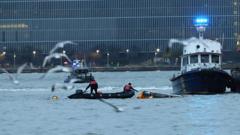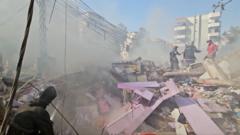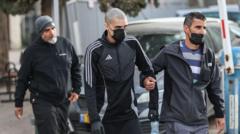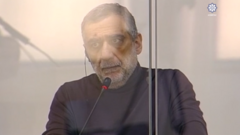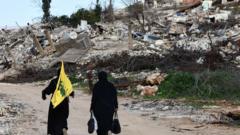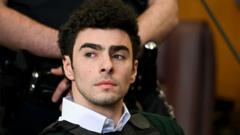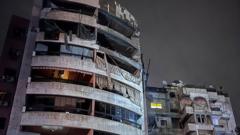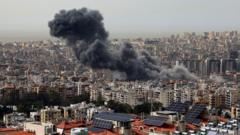As a high-profile case unfolds, the legal and cultural reverberations from the stabbing are examined.
**Salman Rushdie Stabbing Trial: Key Details and Implications Explored**
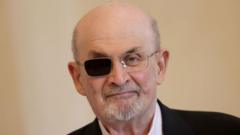
**Salman Rushdie Stabbing Trial: Key Details and Implications Explored**
The trial for the man accused of attacking author Salman Rushdie, leaving him severely injured, begins amid longstanding controversies.
The trial of Hadi Matar, the 27-year-old accused of the stabbing incident involving author Sir Salman Rushdie in 2022, commenced in Mayville, New York. Matar, who has pleaded not guilty to charges of attempted murder and assault, is known to have left Rushdie with significant injuries, including the loss of vision in one eye. The incident took place at the Chautauqua Institute, where Rushdie was scheduled to give a lecture on the safety of exiled authors, making the attack particularly shocking and relevant to ongoing debates about free speech and safety for writers.
Witness accounts highlight the chaos during the attack as Matar rushed onto the stage, stabbing Rushdie multiple times before being subdued. The police promptly arrested Matar, who had been residing in New Jersey, and authorities have yet to determine a clear motive for his actions. The previous threats against Rushdie's life, deeply rooted in the backlash against his novel *The Satanic Verses*, have brought intense scrutiny to the case. The novel's publication had made him a target of a fatwa by Ayatollah Khomeini in 1989, exacerbating concerns about free expression and the safety of writers.
Matar's background is notable, with his Lebanese descent and reported admiration for Khomeini's fatwa adding layers to the case's implications. His stance in media interviews, expressing negativity toward Rushdie while claiming limited familiarity with his work, raises questions about how ideological beliefs can manifest violently. Federal charges alleging Matar's connection to Hezbollah further complicate the narrative, linking individual actions to broader geopolitical tensions.
As the trial progresses, the jury will take testimony from Rushdie himself, who has expressed ambivalence about facing his alleged assailant in court. He has publicly commented on how the attack has altered his life, leading to a memoir entitled *Knife*. The trial has sparked wide-ranging debates about artistic freedom, societal protection of authors, and the profound ramifications of violent acts motivated by ideological extremism.
With both the cultural and legal stakes high, this trial serves as a critical touchstone in contemporary dialogues surrounding free expression, authorship, and the responsibilities of society to protect those who challenge prevailing narratives through their work. The outcome could set precedents for how such acts of violence against authors are addressed, potentially influencing policy and societal attitudes toward literary criticism and freedom.
Witness accounts highlight the chaos during the attack as Matar rushed onto the stage, stabbing Rushdie multiple times before being subdued. The police promptly arrested Matar, who had been residing in New Jersey, and authorities have yet to determine a clear motive for his actions. The previous threats against Rushdie's life, deeply rooted in the backlash against his novel *The Satanic Verses*, have brought intense scrutiny to the case. The novel's publication had made him a target of a fatwa by Ayatollah Khomeini in 1989, exacerbating concerns about free expression and the safety of writers.
Matar's background is notable, with his Lebanese descent and reported admiration for Khomeini's fatwa adding layers to the case's implications. His stance in media interviews, expressing negativity toward Rushdie while claiming limited familiarity with his work, raises questions about how ideological beliefs can manifest violently. Federal charges alleging Matar's connection to Hezbollah further complicate the narrative, linking individual actions to broader geopolitical tensions.
As the trial progresses, the jury will take testimony from Rushdie himself, who has expressed ambivalence about facing his alleged assailant in court. He has publicly commented on how the attack has altered his life, leading to a memoir entitled *Knife*. The trial has sparked wide-ranging debates about artistic freedom, societal protection of authors, and the profound ramifications of violent acts motivated by ideological extremism.
With both the cultural and legal stakes high, this trial serves as a critical touchstone in contemporary dialogues surrounding free expression, authorship, and the responsibilities of society to protect those who challenge prevailing narratives through their work. The outcome could set precedents for how such acts of violence against authors are addressed, potentially influencing policy and societal attitudes toward literary criticism and freedom.





